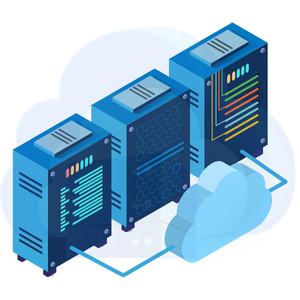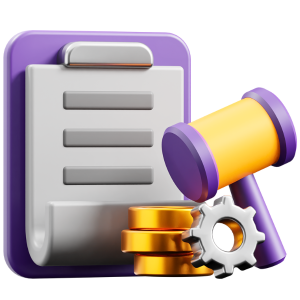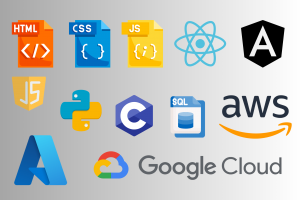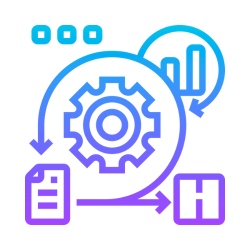 Revolutionize your financial services with Experion. Our innovative solutions fuse global know-how with state-of-the-art technology, tackling your biggest challenges and setting new standards in banking and finance. Financial technology, commonly known as fintech, represents the innovative technology designed to enhance and automate the delivery and utilization of banking and financial services. At its core, fintech aims to help companies, business owners, and consumers better manage their financial operations, processes, and lives. This is achieved through the use of specialized software and algorithms deployed on computers and smartphones. The term “fintech” is a blend of the words “financial” and “technology.
Revolutionize your financial services with Experion. Our innovative solutions fuse global know-how with state-of-the-art technology, tackling your biggest challenges and setting new standards in banking and finance. Financial technology, commonly known as fintech, represents the innovative technology designed to enhance and automate the delivery and utilization of banking and financial services. At its core, fintech aims to help companies, business owners, and consumers better manage their financial operations, processes, and lives. This is achieved through the use of specialized software and algorithms deployed on computers and smartphones. The term “fintech” is a blend of the words “financial” and “technology.
When fintech first emerged, it primarily referred to the technology used in the backend systems of established financial institutions, such as banks. However, from around 2018 to 2022, there was a significant shift towards consumer-oriented services. Today, fintech encompasses a wide array of sectors and industries, including education, retail banking, fundraising, nonprofit organizations, and investment management, among others.
Importance of Software Development in the Fintech Industry
 Software development is the driving force behind the fintech industry. It enables the creation of innovative financial products and services that are secure, user-friendly, and efficient. The importance of software development in fintech cannot be overstated, as it drives the digital transformation of financial services, enhances operational efficiency, and provides competitive advantages. Effective fintech software development ensures financial institutions can stay ahead of technological advancements and meet evolving customer expectations.
Software development is the driving force behind the fintech industry. It enables the creation of innovative financial products and services that are secure, user-friendly, and efficient. The importance of software development in fintech cannot be overstated, as it drives the digital transformation of financial services, enhances operational efficiency, and provides competitive advantages. Effective fintech software development ensures financial institutions can stay ahead of technological advancements and meet evolving customer expectations.
Scope of Fintech Software Development
Fintech software development involves the design, creation, and maintenance of software solutions tailored specifically to the financial sector. This includes applications for online banking, mobile payments, digital wallets, peer-to-peer lending, investment platforms, and blockchain-based solutions. The scope of fintech software development is extensive, covering various aspects such as security, user experience, data analytics, and regulatory compliance. It requires a deep understanding of both technology and finance to develop solutions that meet the stringent requirements of the financial industry.
Fintech Software Development - Key Components and Technologies Involved
Fintech software development leverages a range of advanced technologies to create robust and innovative solutions. Key components and technologies involved include:
Blockchain
 Secure and Transparent Transactions: Blockchain technology provides a decentralized and immutable ledger that records transactions across a network of computers. This ensures that transactions are secure and transparent, making it ideal for cryptocurrencies like Bitcoin and Ethereum, as well as for decentralized finance (DeFi) applications.
Secure and Transparent Transactions: Blockchain technology provides a decentralized and immutable ledger that records transactions across a network of computers. This ensures that transactions are secure and transparent, making it ideal for cryptocurrencies like Bitcoin and Ethereum, as well as for decentralized finance (DeFi) applications.
Smart Contracts: Blockchain enables the creation of smart contracts, self-executing contracts with the terms of the agreement directly written into code. Smart contracts automate and enforce the terms of agreements, eliminating the need for intermediaries and reducing transaction costs.
Tokenization: Blockchain allows for the tokenization of assets, representing real-world assets like real estate or stocks as digital tokens. This enables fractional ownership, increased liquidity, and greater accessibility to investment opportunities.
Artificial Intelligence (AI) and Machine Learning (ML)
 Fraud Detection: AI and ML algorithms can analyze vast amounts of transaction data in real-time to detect patterns indicative of fraudulent activity. By continually learning from new data, these systems can adapt and enhance their detection capabilities over time.
Fraud Detection: AI and ML algorithms can analyze vast amounts of transaction data in real-time to detect patterns indicative of fraudulent activity. By continually learning from new data, these systems can adapt and enhance their detection capabilities over time.
Risk Management: AI-powered risk management systems can assess creditworthiness, evaluate investment risks, and identify potential market fluctuations. These insights enable financial institutions to make informed decisions and manage risks effectively.
Personalized Financial Advice: AI algorithms can analyze individual financial data, preferences, and goals to offer personalized financial advice and recommendations. This enhances customer engagement and satisfaction while helping users achieve their financial objectives.
Predictive Analytics: By analyzing historical data and identifying patterns, AI and ML models can make predictions about future market trends, customer behavior, and investment opportunities. This foresight enables financial institutions to proactively adjust their strategies and offerings.
APIs (Application Programming Interfaces)
 Interoperability: APIs allow different software systems and applications to communicate and share data seamlessly. In fintech, APIs enable the integration of various financial services, such as payment processing, account aggregation, and lending, creating a more connected and interoperable financial ecosystem.
Interoperability: APIs allow different software systems and applications to communicate and share data seamlessly. In fintech, APIs enable the integration of various financial services, such as payment processing, account aggregation, and lending, creating a more connected and interoperable financial ecosystem.
Open Banking: APIs facilitate open banking initiatives by enabling banks and financial institutions to securely share customer data with authorized third-party providers. This fosters innovation, competition, and the development of new financial products and services.
Developer Ecosystem: APIs empower developers to build upon existing financial infrastructure and create innovative solutions tailored to specific user needs. This encourages collaboration, accelerates innovation, and expands the range of financial services available to consumers.
Cybersecurity
 Data Protection: Cybersecurity measures safeguard sensitive financial data, including personal information, account details, and transaction records, from unauthorized access or malicious attacks.
Data Protection: Cybersecurity measures safeguard sensitive financial data, including personal information, account details, and transaction records, from unauthorized access or malicious attacks.
Threat Detection: Advanced cybersecurity systems employ machine learning algorithms to detect and respond to cyber threats in real-time. These systems can identify unusual patterns or behaviors that may indicate a potential security breach and take corrective action.
Regulatory Compliance: Fintech companies must adhere to strict regulatory standards regarding data privacy and security. Robust cybersecurity measures ensure compliance with regulations such as GDPR, PCI DSS, and industry-specific requirements.
Cloud Computing
 Scalability: Cloud computing provides on-demand access to scalable computing resources, allowing fintech companies to quickly scale their infrastructure to meet fluctuating demand without investing in costly hardware.
Scalability: Cloud computing provides on-demand access to scalable computing resources, allowing fintech companies to quickly scale their infrastructure to meet fluctuating demand without investing in costly hardware.
Flexibility: Cloud-based platforms offer flexibility in deploying and managing software applications, enabling rapid development, testing, and deployment of new features and updates.
Cost Efficiency: Cloud computing eliminates the need for upfront capital investment in physical infrastructure and reduces ongoing maintenance costs. Pay-as-you-go pricing models allow fintech companies to pay only for the resources they consume, optimizing cost efficiency.
Fintech Software Development - Market Overview and Trends
The fintech market has experienced exponential growth over the past decade, driven by technological advancements and shifting consumer preferences. Key trends shaping the fintech software development landscape include:
Digital Payments
 E-commerce and Mobile Commerce: The proliferation of online shopping and mobile apps has fueled the demand for digital payment solutions. Consumers expect seamless and secure payment experiences across various devices and platforms, driving the adoption of digital wallets, mobile payment apps, and contactless payment methods.
E-commerce and Mobile Commerce: The proliferation of online shopping and mobile apps has fueled the demand for digital payment solutions. Consumers expect seamless and secure payment experiences across various devices and platforms, driving the adoption of digital wallets, mobile payment apps, and contactless payment methods.
Convenience and Speed: Digital payments offer unparalleled convenience and speed compared to traditional payment methods like cash or checks. Instantaneous transactions, simplified checkout processes, and the ability to make payments anytime, anywhere have become essential features for businesses and consumers alike.
Regtech (Regulatory Technology)
 Compliance Efficiency: Financial institutions are subject to an increasingly complex regulatory environment, requiring robust compliance measures to mitigate risks and ensure regulatory adherence. Regtech solutions leverage technology, such as AI, ML, and blockchain, to automate compliance processes, monitor regulatory changes, and streamline reporting requirements.
Compliance Efficiency: Financial institutions are subject to an increasingly complex regulatory environment, requiring robust compliance measures to mitigate risks and ensure regulatory adherence. Regtech solutions leverage technology, such as AI, ML, and blockchain, to automate compliance processes, monitor regulatory changes, and streamline reporting requirements.
Cost Reduction: Manual compliance processes are labor-intensive and time-consuming. Regtech solutions offer cost-effective alternatives by automating repetitive tasks, reducing human error, and improving operational efficiency, thereby lowering compliance costs for financial institutions.
Open Banking
 API Integration: Open banking initiatives encourage financial institutions to open their APIs to third-party developers, allowing for the secure exchange of financial data and the development of innovative financial products and services. By enabling data sharing between banks, fintech startups, and other third-party providers, open banking fosters collaboration, competition, and customer-centric innovation.
API Integration: Open banking initiatives encourage financial institutions to open their APIs to third-party developers, allowing for the secure exchange of financial data and the development of innovative financial products and services. By enabling data sharing between banks, fintech startups, and other third-party providers, open banking fosters collaboration, competition, and customer-centric innovation.
Consumer Empowerment: Open banking empowers consumers to access and share their financial data with authorized third-party providers, enabling them to benefit from personalized financial advice, improved product offerings, and better financial management tools.
Financial Inclusion
 Access to Financial Services: Fintech solutions are breaking down barriers to financial access for unbanked and underbanked populations, particularly in developing regions. Mobile banking, digital wallets, and microfinance platforms are providing previously underserved communities with access to essential financial services such as savings accounts, credit, insurance, and remittances.
Access to Financial Services: Fintech solutions are breaking down barriers to financial access for unbanked and underbanked populations, particularly in developing regions. Mobile banking, digital wallets, and microfinance platforms are providing previously underserved communities with access to essential financial services such as savings accounts, credit, insurance, and remittances.
Empowering Entrepreneurs: Fintech platforms are also empowering entrepreneurs and small businesses by providing access to funding, payment solutions, and business management tools. By democratizing access to financial resources and services, fintech is driving economic growth and social inclusion in underserved communities.
With a presence in over 36 countries and a proven ability to address critical issues for high-profile clients, Experion delivers fintech solutions that enhance growth and efficiency. Our expertise accelerates development, bringing you world-class technology and insights.
Fintech Software Development - Technology Stacks
Choosing the right technology stack is crucial for developing robust and scalable fintech applications. The technology stack encompasses the programming languages, frameworks, databases, and tools used to build and maintain software. Here are some key components of a typical technology stack for fintech software development:
 Frontend Development:
Frontend Development:
- Languages: HTML, CSS, JavaScript
- Frameworks: React, Angular, Vue.js
Backend Development:
- Languages: Java, Python, Ruby, C#
- Frameworks: Spring Boot (Java), Django (Python), Ruby on Rails (Ruby), .NET (C#)
Databases:
- SQL Databases: PostgreSQL, MySQL, Oracle
- NoSQL Databases: MongoDB, Cassandra
APIs and Integration:
- RESTful APIs: For communication between frontend and backend
- GraphQL: For more efficient data queries
Security Technologies:
- Encryption: SSL/TLS, AES
- Authentication: OAuth, JWT (JSON Web Tokens)
- Monitoring and Auditing: ELK Stack (Elasticsearch, Logstash, Kibana), Splunk
Cloud Services:
- Providers: AWS, Microsoft Azure, Google Cloud Platform
- Services: Serverless computing, containerization (Docker, Kubernetes)
Development Tools:
- Version Control: Git, GitHub, GitLab
- CI/CD: Jenkins, Travis CI, CircleCI
By carefully selecting the appropriate technology stack, fintech companies can ensure their applications are secure, scalable, and capable of delivering a seamless user experience. The right combination of tools and technologies not only facilitates efficient development but also ensures the long-term sustainability and adaptability of fintech solutions.
Fintech Software Development – Best Practices
Agile Methodologies and Their Relevance
Agile methodologies have become essential in fintech software development due to their flexibility, iterative approach, and emphasis on customer collaboration. Agile practices, such as Scrum and Kanban, promote continuous improvement and allow for rapid adaptation to changing requirements. This is particularly important in the fast-paced fintech landscape. Here’s why agile methodologies are highly relevant in fintech:
 Quick Adaptation: Fintech companies can swiftly respond to market changes, regulatory updates, and emerging technologies, ensuring their solutions remain competitive and compliant.
Quick Adaptation: Fintech companies can swiftly respond to market changes, regulatory updates, and emerging technologies, ensuring their solutions remain competitive and compliant.
Enhanced Collaboration: Agile encourages close collaboration between developers, stakeholders, and end-users, ensuring the developed solutions meet actual user needs and expectations.
Incremental Development: By delivering software in small, manageable increments, fintech companies can gather user feedback early and often, leading to more refined and user-centric products.
Risk Management: Frequent testing and iteration help identify and address issues early in the development process, reducing the risk of significant failures and ensuring a more reliable end product.
Importance of Security and Compliance Measures
Security and compliance are paramount in fintech software development due to the sensitive nature of financial data and the stringent regulatory environment. Best practices for ensuring robust security and compliance include:
 Data Encryption: Implementing strong encryption methods (such as SSL/TLS for data in transit and AES for data at rest) to protect sensitive information from unauthorized access.
Data Encryption: Implementing strong encryption methods (such as SSL/TLS for data in transit and AES for data at rest) to protect sensitive information from unauthorized access.
Authentication and Authorization: Using secure authentication mechanisms (like OAuth and JWT) to ensure that only authorized users can access the system, safeguarding user data and preventing unauthorized activities.
Regular Security Audits: Conducting frequent security audits and vulnerability assessments to identify and address potential threats before they can be exploited.
Compliance with Regulations: Adhering to relevant financial regulations such as GDPR (General Data Protection Regulation), PCI-DSS (Payment Card Industry Data Security Standard), and AML (Anti-Money Laundering) to avoid legal penalties and build customer trust.
Incident Response Plans: Establishing comprehensive incident response plans to quickly mitigate and recover from security breaches, minimizing damage and ensuring business continuity.
By integrating these security and compliance measures, fintech companies can protect their customers’ sensitive information, maintain regulatory compliance, and build a trustworthy brand reputation. These practices are not only crucial for maintaining the integrity and reliability of fintech applications but also for fostering trust and confidence among users and stakeholders.
Fintech Software Development – Opportunities and Challenges
Opportunities:
- Digital Payment Services: The digitization of payment services has revolutionized financial transactions, making them more efficient and convenient. Digital-only banks offer benefits such as real-time analytics, account balance overview, and bill payments, enhancing user experience.
- Big Data and Analytics: Data and analytics play a crucial role in driving innovation in the financial sector. By leveraging big data and analytics, companies can enhance operations, predict customer needs, and offer personalized product recommendations, ultimately improving customer satisfaction and profitability.
- Blockchain Technology: Blockchain technology is increasingly being adopted by financial institutions for its ability to provide secure and transparent transactions. It has applications in digital payments, stock trading, smart contracts, and identity management, offering opportunities for enhanced efficiency and security.
- Personalization: Personalization in banking involves providing tailored services and products based on individual customer preferences and behaviors. By implementing digital transformation initiatives focused on personalization, financial institutions can enhance customer satisfaction and loyalty, ultimately driving business growth.
- Robotic Process Automation (RPA): RPA offers efficient and cost-effective ways of managing financial transactions and processes. By automating repetitive tasks, RPA can improve operational efficiency, reduce errors, and enhance customer service, leading to improved business outcomes.
Challenges:
- Data Privacy and Application Security: Fintech companies face challenges related to data privacy and application security due to the sensitive nature of financial data. Ensuring robust security measures and compliance with data protection regulations is essential to protect user data and maintain trust.
- Regulatory and Compliance Laws: Fintech startups must navigate complex regulatory frameworks and compliance requirements, which can be challenging and time-consuming. Compliance with regulations such as GDPR and AML is crucial but can pose significant roadblocks for new entrants to the market.
- Customer Experience: While fintech companies have made significant strides in improving the user experience, there is still room for improvement. Creating a seamless and intuitive user experience that goes beyond a simple user interface remains a challenge, particularly in complex financial processes.
- Changing Revenue and Business Models: Fintech companies must adapt their revenue and business models to cope with changing market conditions and economic downturns. This may involve cost-cutting measures, revenue stream diversification, or business model pivots to remain competitive and sustainable.
- Personalized Services: Offering personalized services to customers is challenging for fintech companies due to the vast amount of data and the need for real-time, tailored solutions. However, personalized services are increasingly demanded by customers who seek customized financial advice and recommendations.
Fintech Software Development – Future Outlook
Predictions for the Future of Fintech Software Development
Expansion of AI and Machine Learning
Predictive analytics and AI-driven insights will play a more significant role in fintech software development. AI and machine learning algorithms will be utilized for advanced fraud detection, personalized financial advice, and risk management, enhancing the overall customer experience and operational efficiency.
Increased Adoption of Open Banking
Open banking initiatives will gain momentum, leading to greater collaboration and integration among financial institutions and third-party developers. This will result in the development of innovative fintech solutions that leverage open APIs to provide seamless and personalized financial services to customers.
Growth of Decentralized Finance (DeFi)
Decentralized finance platforms built on blockchain technology will continue to grow, offering alternatives to traditional financial services. DeFi solutions will enable peer-to-peer lending, automated trading, and decentralized exchanges, disrupting traditional banking and investment sectors.
Focus on Cybersecurity and Data Privacy
As fintech applications become more prevalent, cybersecurity and data privacy will be paramount. Fintech companies will invest heavily in robust security measures, encryption technologies, and compliance frameworks to protect sensitive financial data and maintain customer trust.
Evolution of Digital Payments
Digital payments will continue to evolve, with a shift towards contactless and mobile payment solutions. The rise of cryptocurrencies and stablecoins will further accelerate the adoption of digital payments, offering faster, cheaper, and more secure alternatives to traditional payment methods.
Emerging Areas of Focus and Potential Disruptions
Quantum Computing
The emergence of quantum computing technology has the potential to revolutionize fintech software development. Quantum computers will enable faster and more efficient processing of complex financial algorithms and models, opening up new possibilities for risk management, portfolio optimization, and fraud detection.
Biometric Authentication
Biometric authentication methods, such as fingerprint recognition and facial recognition, will become more prevalent in fintech applications. These technologies offer enhanced security and convenience, reducing reliance on traditional password-based authentication methods.
Internet of Things (IoT)
The integration of IoT devices with fintech applications will create new opportunities for personalized financial services and real-time data analysis. IoT sensors embedded in wearable devices, smart homes, and vehicles will provide valuable insights into customer behavior and preferences, enabling tailored financial solutions.
Regulatory Technology (Regtech)
The rise of regulatory technology solutions will simplify compliance processes for fintech companies, helping them navigate complex regulatory environments more efficiently. Regtech solutions will automate compliance tasks, monitor regulatory changes, and ensure adherence to legal requirements, reducing regulatory risks and operational costs.
Cross-Border Payments
Advancements in blockchain technology and digital currencies will facilitate faster and cheaper cross-border payments. Fintech solutions leveraging blockchain networks will enable real-time settlement and lower transaction fees, disrupting traditional remittance services and international banking.
How Can Experion Help You with Fintech Software Development?
Experion Technologies is a leading provider of custom software development services, with extensive experience in the fintech industry. Our team of experts specializes in developing innovative fintech solutions tailored to your specific needs and requirements. Here’s how Experion can help you with fintech software development:
- Customized Solutions: We work closely with you to understand your business goals and challenges, delivering custom fintech solutions that address your unique requirements and objectives.
- Expertise in Emerging Technologies: Our team stays at the forefront of emerging technologies such as AI, blockchain, and IoT, leveraging these technologies to create cutting-edge fintech applications that drive innovation and competitive advantage.
- Security and Compliance: We prioritize security and compliance in all our fintech projects, implementing robust security measures and ensuring adherence to regulatory standards to protect your sensitive financial data and maintain regulatory compliance.
- Agile Development Methodology: We follow agile development methodologies to ensure transparency, flexibility, and rapid delivery of fintech solutions. Our iterative approach allows for continuous feedback and adaptation, ensuring that the final product meets your expectations and requirements.
- Post-Deployment Support: Our commitment to customer satisfaction extends beyond the initial development phase. We provide ongoing support and maintenance services to ensure the long-term success and performance of your fintech applications.
Join the ranks of our success stories and experience how Experion’s exceptional capabilities and global reach can elevate your fintech strategy. Let’s partner to make a significant impact on your business and set new benchmarks for success.

